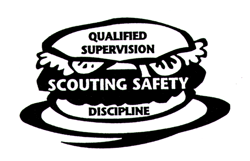Many outdoor leadership commentators take the view that those in charge of outdoor recreation programs should possess certain “core” skills, stated by some to include activity and technical skills, teaching and modeling skills, group process skills, and judgment and decision-making skills. Prouty et al, “Adventure Education – Theory and Applications”, 2007, p. 82.
Martin and Wagstaff, “Controversial Issues in Adventure Programming“, 2012, p. 58, recite the following examples of desirable outdoor leader skills, attributes, characteristics, and behaviors:
- ability to evaluate hazards
- problem-solving skills
- activity technical skills
- self-control
- outdoor skill competence
- group management
- leadership experience
- positive attitude
- creativity
- emotional stability
- integrity
- vision
- sense of commitment
- ability to foster teamwork
- identify individual needs
- ethics and values
- organizational skills
- emergency situation skills
- planning skills
- tolerance for adversity
- flexibility
- aware of group dynamics
- group facilitation skills
- communication skills
- emotional intelligence
- assess individual ability
- empathy for others
- teaching skills
- decision-making skills
All good skills to which an adult Scouting volunteer should aspire to assist in the successful planning and conduct of an outdoor program, as well as an important aspect of providing “qualified supervision”.

